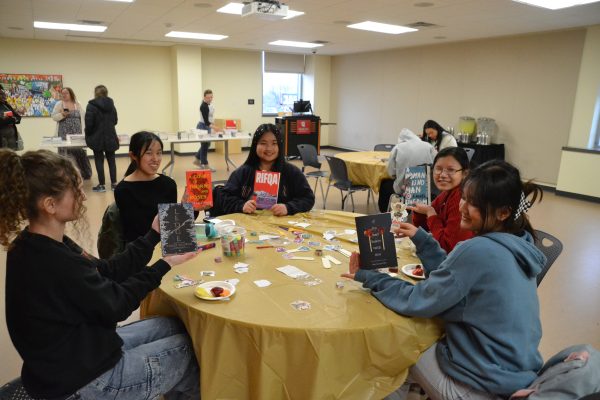Problem gambling and what we need to know
Hamline’s Problem Gambling conference provided a primer on the cultural context of this addiction.
October 2, 2019
Hamline University, in collaboration with the Northstar Problem Gambling Alliance, recently held a conference providing an informative, educational look into the rising issue of problem gambling addiction. The conference was headed by Dr. Serena King, a Hamline professor who also spent seventeen years studying gambling addiction within the Laotian communities of Minnesota.
King stated in the initial presentation that her goal was to “gain sound data for Minnesota and for the community to determine a need for services and offer ideas and concepts for education and prevention of problem gambling.”
Dr. Serena King’s presentation delved deep into the cultural context of gambling within the Lao community.
“It’s important to keep in mind that a Western lens may not apply,” King said.
King mentioned how Laotians in Minnesota are the third-largest Laotian community in America, with Minnesotan Laotians numbering at around 12,000. The problem, King pointed out, was the lack of diagnosis of gambling addiction in comparison to alcohol addiction in psychological texts such as the DSM, or the Diagnostic and Statistical Manual of Mental Disorders.
King identified the origins of gambling in Laotian communities as both cultural and psychological.
Gambling in many Laotian social circles contributes to interactions between members and provides a subculture that might be comparable to the camaraderie of alcohol consumption found most often in American media. King even mentioned the partaking of gambling within Laotian temples and households. The problem stretches far past casinos.
Southeast Asian refugees have statistically high rates of trauma, domestic violence and poverty, so gambling has become an escape for many members. King found this data within a survey of 200 problem gamblers and non-problem gamblers within the Laotian community.
As the logistics of the survey were explained, King talked about how difficult it was to reach the community amidst stigmas against mental health concerns, limited research literature on addiction within the community and the language barrier researchers faced. Despite these challenges found among the research methods and survey, King was able to narrow down the causes of problem gambling to a few wide reasons; making money, entertaining, socialization and an escape from depression and stress.
A Q&A panel conversation featured King alongside other academics and experts on the topic. Don Feeney, President of the Northstar Problem Gambling Alliance; Sunny Chanthanouvong, Executive Director of the Lao Assistance Center of Minnesota; and Susan Sheridan Tucker, Executive Director of the Northstar Problem Gambling Alliance. The panel provided a mixture of light-hearted anecdotes, useful statistics and insights into the Lao community—such as the habits of gambling being inherited, encouraged and seen as ritual among Laotian families—that helped the audience understand the true breadth of the issue.





